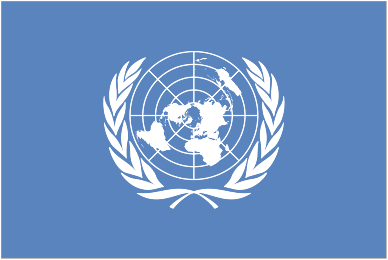
The food and nutrition crisis facing countries in West Africa’s drought-prone Sahel region has continued to deteriorate at an alarming rate despite commendable early response efforts by governments and international aid agencies, a senior United Nations official said today.
“We are in a race against time and some of the harshest climatic conditions on the planet,” said the Director of Operations at the UN Office for the Coordination of Humanitarian Affairs (OCHA), John Ging, after returning from a week-long mission to Niger, Burkina Faso and Mauritania.
“This is already an appalling crisis in terms of the scale and degree of human suffering and it will get worse unless the response plans are properly funded,” he added. “It’s a matter of life or death for millions who are on the brink.”
More than 15 million people in the Sahel are directly affected by worsening food shortages and malnutrition brought on by the ongoing drought, which has been compounded by conflict and insecurity. Earlier this week, the Security Council expressed serious concern over the rapidly deteriorating humanitarian crisis there, saying that the presence of armed and terrorist groups, as well as the proliferation of weapons in the area, has exacerbated the problem.
An estimated 100,000 refugees fleeing conflict in Mali have sought shelter in neighbouring countries, and tens of thousands of migrant workers have returned from Libya and Côte d’Ivoire, meaning that they can no longer send remittances to their families. A crucial coping mechanism has therefore collapsed for poor communities who depended on the remittances, according to OCHA.
Mr. Ging underlined the urgent need to accelerate the pace of the response to the crisis. “More than 200,000 children died of malnutrition last year and over one million are threatened with severe acute malnutrition right now,” he said.
At a meeting with representatives from donor countries in Nouakchott, the capital of Mauritania, the humanitarian official encouraged their continued generosity, highlighting the clearly visible and positive lifesaving impact of their funding so far.
However, response plans across the region are less than 40 per cent funded and the crisis is expected to peak in the coming months.
According to OCHA, close coordination between aid agencies and national governments in the development of response plans in the region is building on international best practice tailored to the specifics of each locality.
“We must focus on both the immediate and longer-term issues simultaneously, as building resilience and sustainable livelihoods capable of coping with the new climatic reality across the Sahel is key to saving lives,” Mr. Ging said.
The response plans focus on the effective management of natural resources, particularly water conservation, through maximizing efficient irrigation, expanding cultivation areas, and increasing agricultural output.
Meanwhile, as part of a United Nations initiative to fight hunger, football stars from 300 European professional clubs will this weekend take to the field to help raise awareness of the need for urgent action to avert a humanitarian disaster in the Sahel region of Africa.
Starting on Saturday, European professional clubs will play a series of matches over four days in various cities, from Glasgow in Scotland to Novosibirsk in Russia, to raise awareness among football enthusiasts about the rapidly deteriorating humanitarian crisis in the Sahel.
“We need public support for food crises like this one. No one knows like footballers how crucial it is to have the stadium on your side to win the match,” said a UN Goodwill Ambassador for the Food and Agriculture Organization (FAO), Spanish football player Raúl González Blanco.
Due to poor rainfall and failed harvests, the Sahel region is currently in the grip of a food crisis. Some 15 million people are estimated to be at risk of food insecurity, compounded by chronic poverty, high food prices and conflict, and are in urgent need of live-saving cash, food and agricultural training to protect their livelihoods.
The matches, which kick-off on Friday, are part of the Match Against Hunger campaign, launched in 2008 by the Association of European Professional Football Leagues in collaboration with FAO and the European Commission. Participants in the campaign include Brazilian player Roberto Carlos and former Italian national team goalkeeper Francesco Toldo.
“The people of the Sahel may think the world has forgotten them,” said Mr. Toldo. “This weekend, European football will stand in solidarity with them. They will know that they are not alone.”
“We have a responsibility to those who are in distress through no fault of their own,” said former French international player Patrick Vieira, who was born in Senegal, one of the affected countries. “The right to food is a basic human right, and no one in today’s world should go hungry.”
“We must act now to help people help themselves,” said FAO’s Director-General, José Graziano da Silva. “At the same time, we need to build resilience in local communities to stop jumping from crisis to crisis, and to prevent droughts from leading inevitably to famine.”
Many football players have been helping to fight hunger through their work as goodwill ambassadors. Former footballer Hristo Stoitchkov, who was known as “El Pistolero” (the gunslinger) visited Burkina Faso last year to see the joint work of the European Commission and FAO up close.
“I have witnessed their life-saving, life-changing work first hand. They help people to feed themselves today and prepare for tomorrow. It’s the right kind of help getting to the right people,” Mr. Stoitchkov said.
Felix Magath, a former footballer and active coach in the German Bundesliga, the professional football league stated, “We will ask our fans to join with us in calling for urgent help to the Sahel. United in this one cause we can truly make a difference".